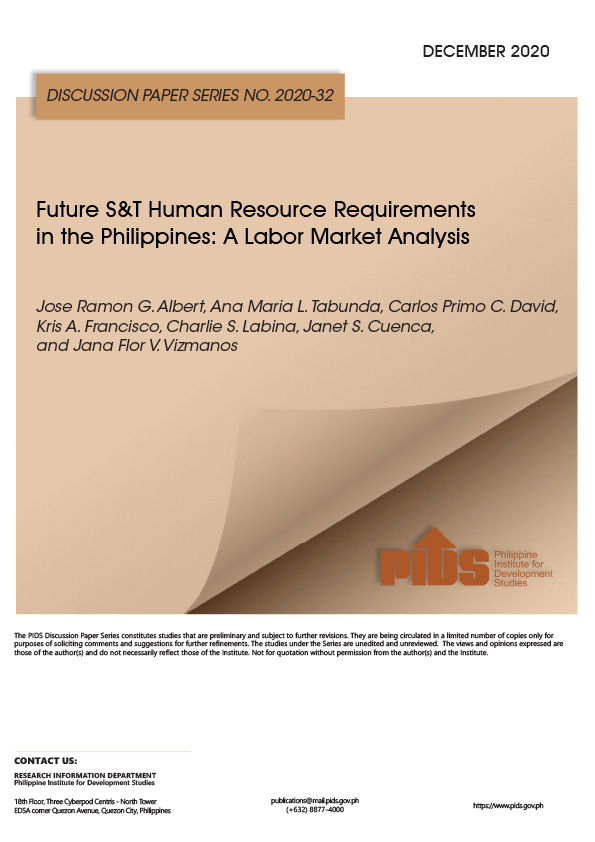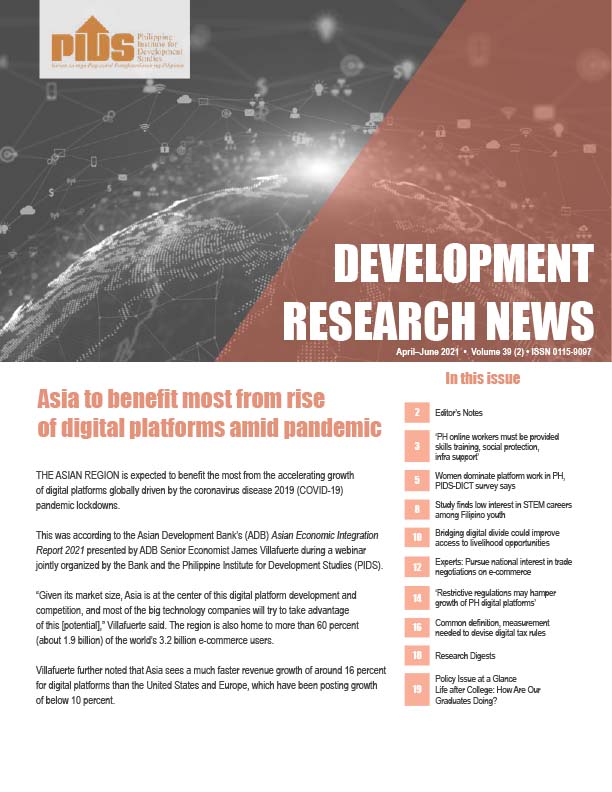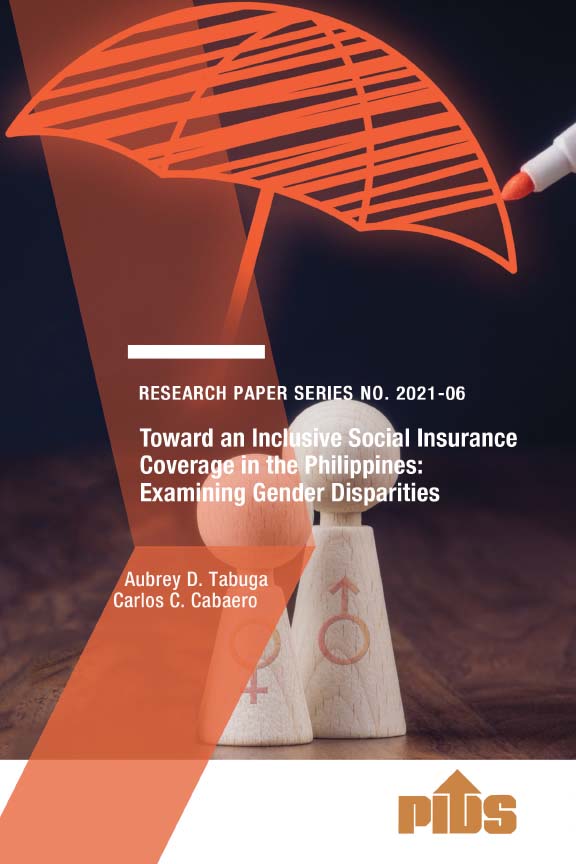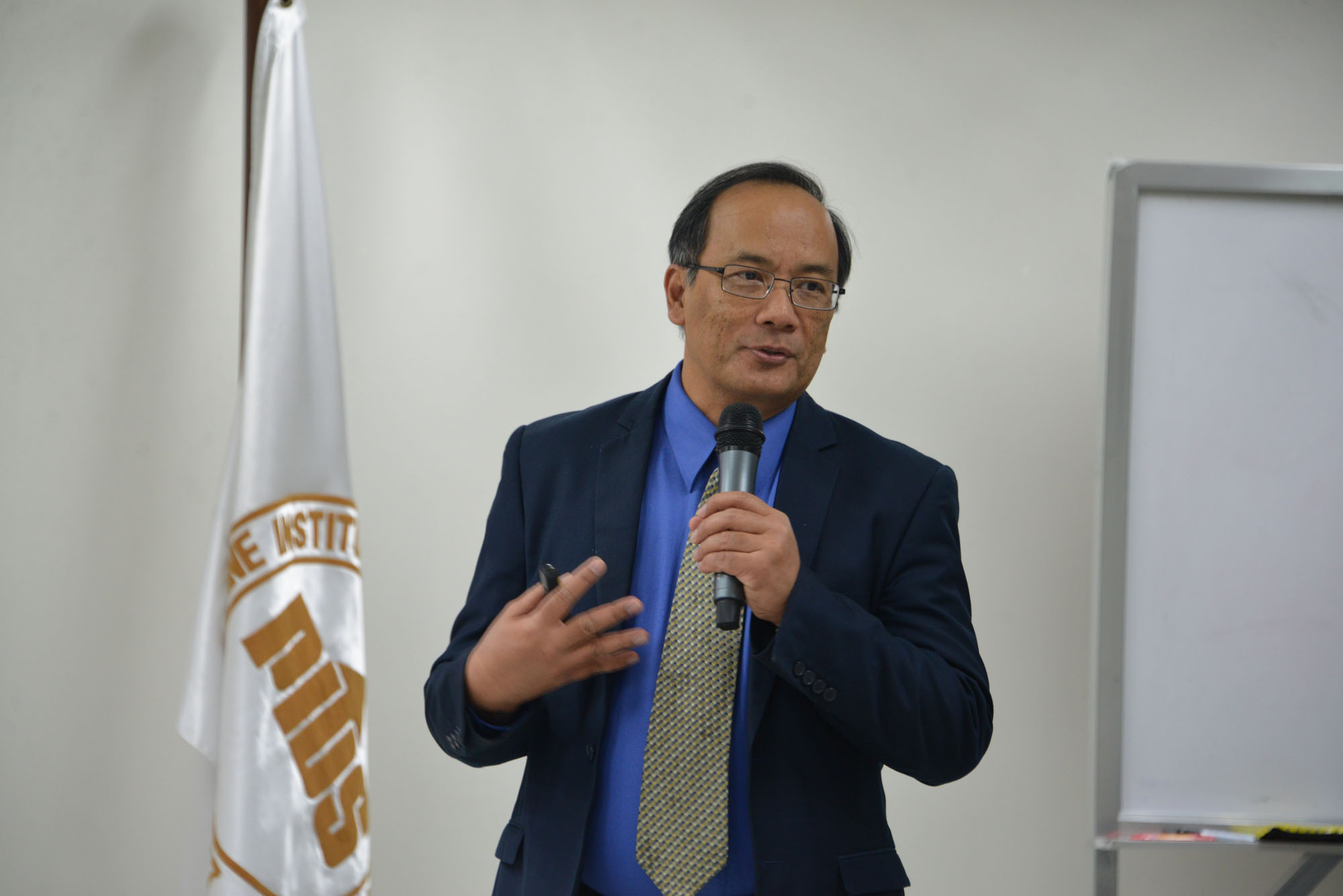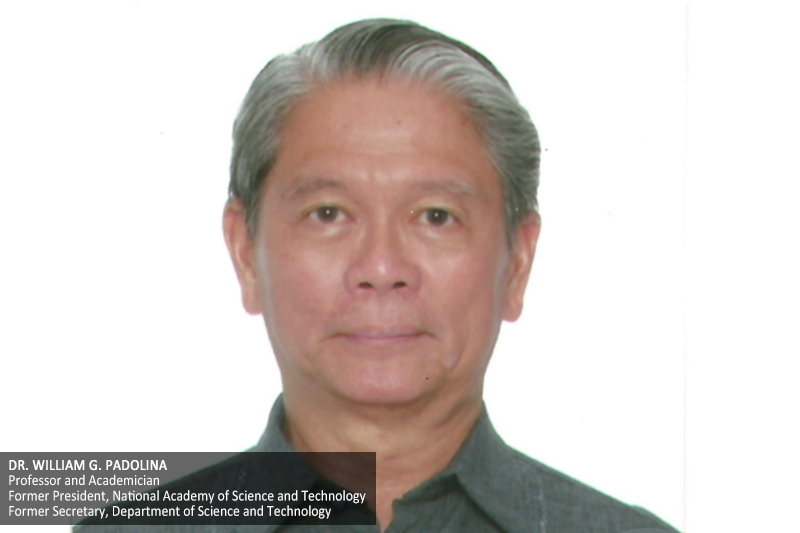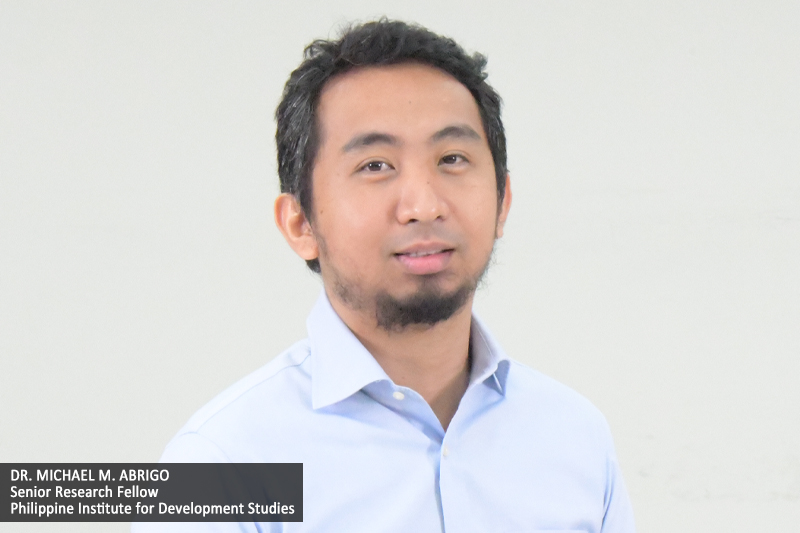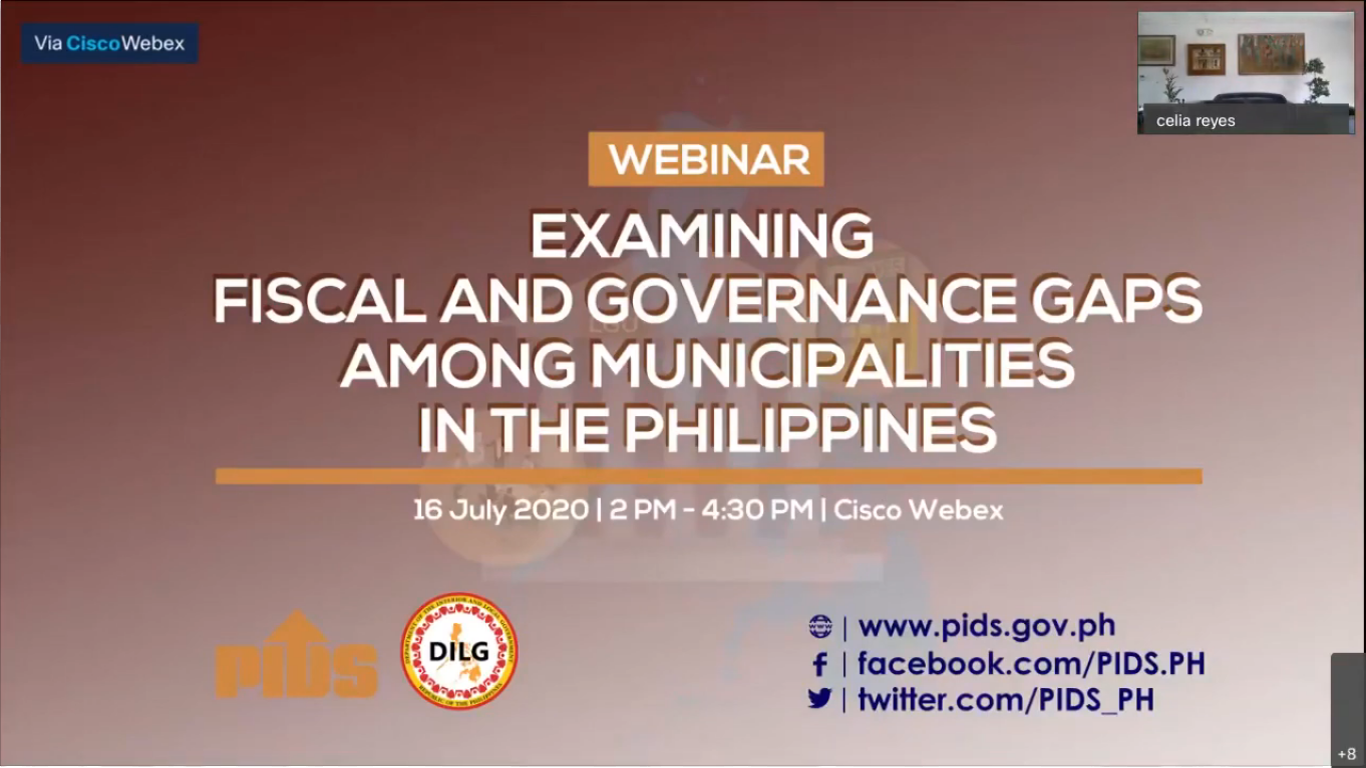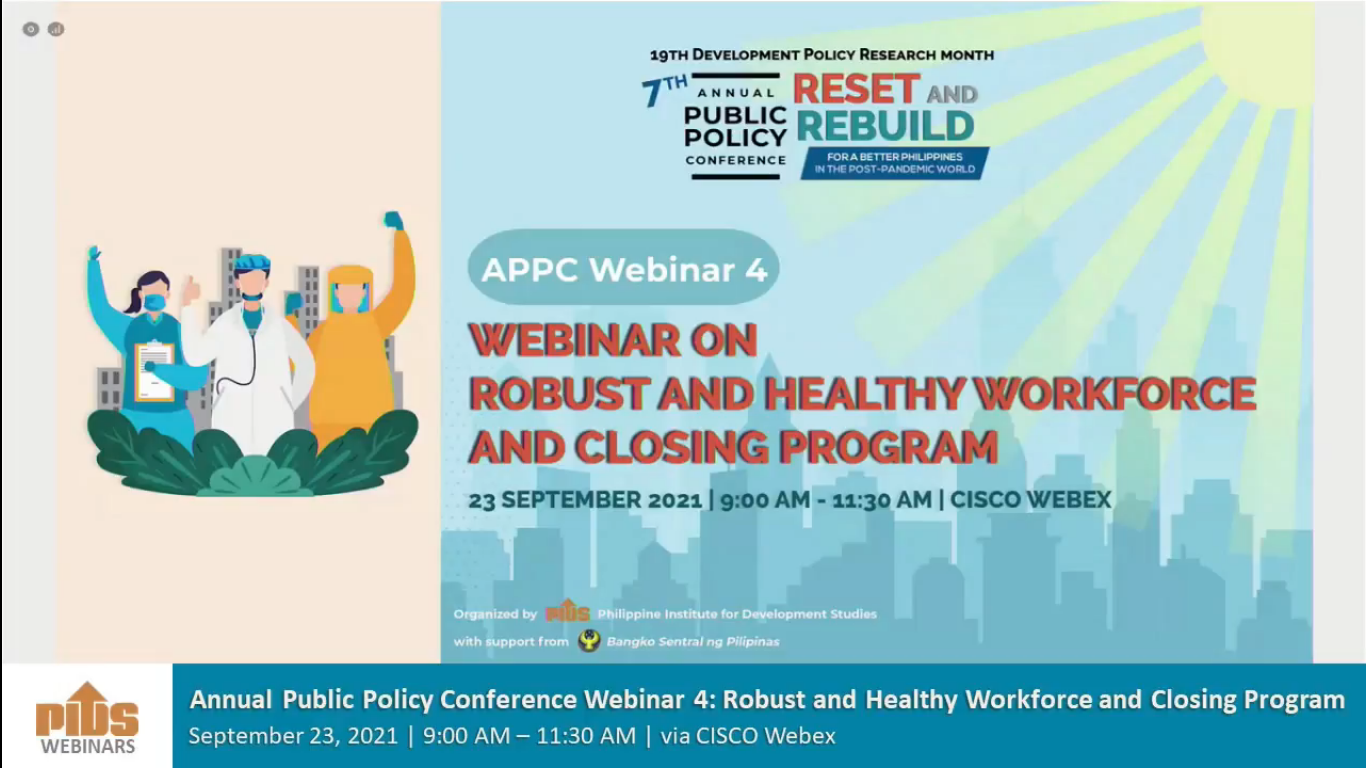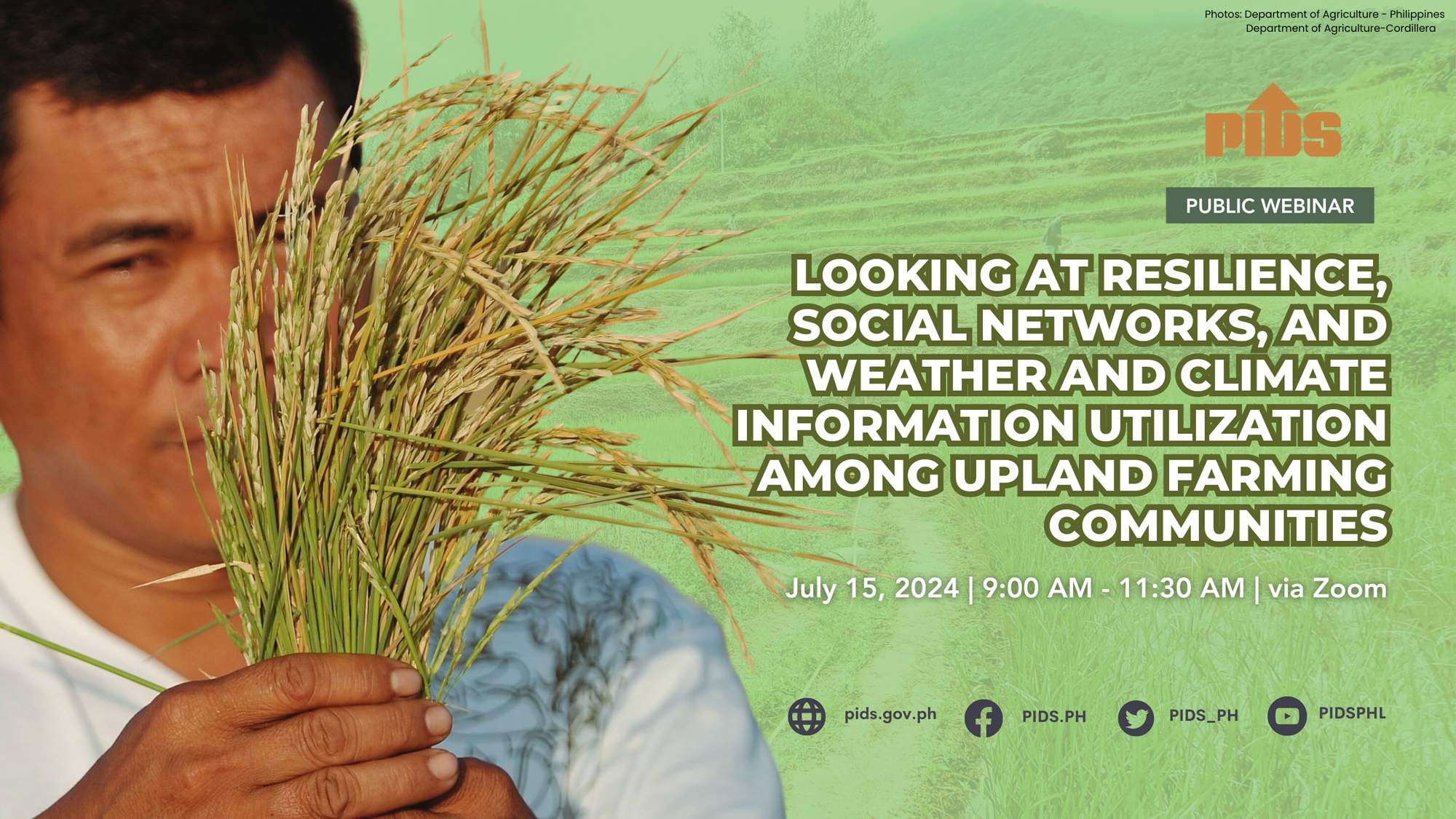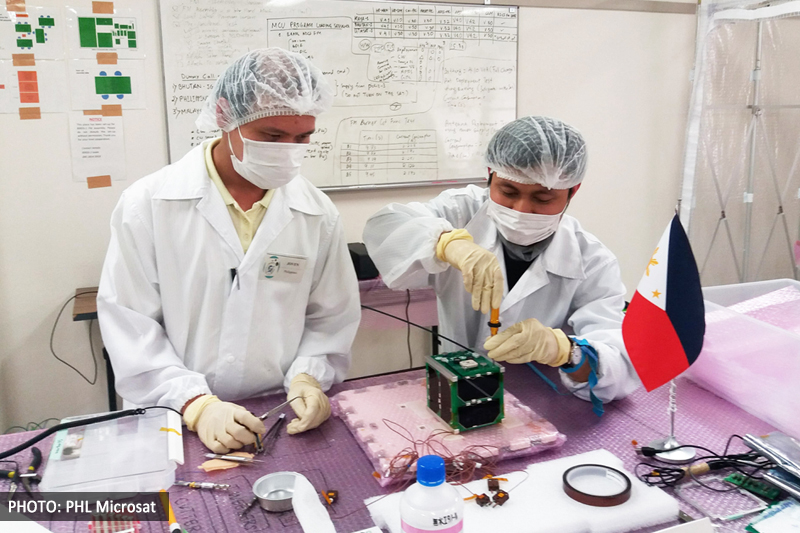
A holistic approach to support the country’s current and future science and technology (S&T) workers should be a joint undertaking among various sectors.
This was one of the key messages during the Philippine Institute for Development Studies’ (PIDS) public webinar titled “A Labor Market Analysis of S&T Human Resource Needs in the Philippines”.
In his presentation, Dr. Jose Ramon G. Albert, PIDS senior research fellow, noted that the “need of the [country’s] economy for S&T workers to support its projected growth” cannot be attained by the government alone, but through “a joint undertaking involving the private sector, as well as the academic institutions”.
Unilab Foundation Program Lead for STEM (science, technology, engineering, and math) Leadership Alliance and Workforce Development Benedict Buhain, a discussant in the virtual event, shared the same view.
He emphasized that children should be exposed to STEM at a young age to have a good grasp of the learnings and expectations in integrated science and technology.
This, according to Buhain, is one of the objectives of Unilab Foundation’s Center for Integrated STEM Education (CISTEM) in the Philippines.
CISTEM promotes collaboration among various academic and research institutions through its strategic programs on teacher upskilling, learner empowerment, curricular innovation, government-industry-education partnership, and research.
Some of its initiatives include producing information, education, and communication materials for remote learners, organizing online workshops for educators, and spearheading innovation programs for different stakeholders.
Meanwhile, Dr. Laura T. David, Commission on Higher Education (CHED)’s Technical Committee for Marine Science Chairperson and Technical Panel on Science and Mathematics Member, also a discussant in the webinar, stressed that S&T improvement must begin with the quality of faculty members.
Faculty members, she said, should “retool, research, [and] collaborate with other people [who] are doing [S&T] as they progress in research”. This will enable them to share their knowledge with their students and be able to “specialize and develop a niche in their own SUCs [state universities and colleges] or HEIs [higher education institutions]”.
However, David noted some concerns that hinder the hiring of more faculty members in SUCs. First is the rule that applicants must be Filipinos. Second is the many requirements that they should meet.
“Even if I have [a] PhD, I have to have eight years of relevant experience in teaching, forty hours of relevant training, and demonstrated significant contribution to community development before I am hired as a professor,” she said.
David also stressed the importance of synergy among government agencies like the Department of Science and Technology, CHED, and HEIs in supporting the career development of faculty members.
“[There should be] government support that will encourage our current teachers to pursue their PhDs and therefore, give incentives to academic institutions to hire substitutes” she said. ###
The e-copy of the study may be downloaded here: https://pidswebs.pids.gov.ph/CDN/PUBLICATIONS/pidsdps2032.pdf. You may also watch the webinar at https://www.facebook.com/PIDS.PH/videos/430223691592758. For more videos of PIDS events, go to https://www.pids.gov.ph/videos.
This was one of the key messages during the Philippine Institute for Development Studies’ (PIDS) public webinar titled “A Labor Market Analysis of S&T Human Resource Needs in the Philippines”.
In his presentation, Dr. Jose Ramon G. Albert, PIDS senior research fellow, noted that the “need of the [country’s] economy for S&T workers to support its projected growth” cannot be attained by the government alone, but through “a joint undertaking involving the private sector, as well as the academic institutions”.
Unilab Foundation Program Lead for STEM (science, technology, engineering, and math) Leadership Alliance and Workforce Development Benedict Buhain, a discussant in the virtual event, shared the same view.
He emphasized that children should be exposed to STEM at a young age to have a good grasp of the learnings and expectations in integrated science and technology.
This, according to Buhain, is one of the objectives of Unilab Foundation’s Center for Integrated STEM Education (CISTEM) in the Philippines.
CISTEM promotes collaboration among various academic and research institutions through its strategic programs on teacher upskilling, learner empowerment, curricular innovation, government-industry-education partnership, and research.
Some of its initiatives include producing information, education, and communication materials for remote learners, organizing online workshops for educators, and spearheading innovation programs for different stakeholders.
Meanwhile, Dr. Laura T. David, Commission on Higher Education (CHED)’s Technical Committee for Marine Science Chairperson and Technical Panel on Science and Mathematics Member, also a discussant in the webinar, stressed that S&T improvement must begin with the quality of faculty members.
Faculty members, she said, should “retool, research, [and] collaborate with other people [who] are doing [S&T] as they progress in research”. This will enable them to share their knowledge with their students and be able to “specialize and develop a niche in their own SUCs [state universities and colleges] or HEIs [higher education institutions]”.
However, David noted some concerns that hinder the hiring of more faculty members in SUCs. First is the rule that applicants must be Filipinos. Second is the many requirements that they should meet.
“Even if I have [a] PhD, I have to have eight years of relevant experience in teaching, forty hours of relevant training, and demonstrated significant contribution to community development before I am hired as a professor,” she said.
David also stressed the importance of synergy among government agencies like the Department of Science and Technology, CHED, and HEIs in supporting the career development of faculty members.
“[There should be] government support that will encourage our current teachers to pursue their PhDs and therefore, give incentives to academic institutions to hire substitutes” she said. ###
The e-copy of the study may be downloaded here: https://pidswebs.pids.gov.ph/CDN/PUBLICATIONS/pidsdps2032.pdf. You may also watch the webinar at https://www.facebook.com/PIDS.PH/videos/430223691592758. For more videos of PIDS events, go to https://www.pids.gov.ph/videos.

